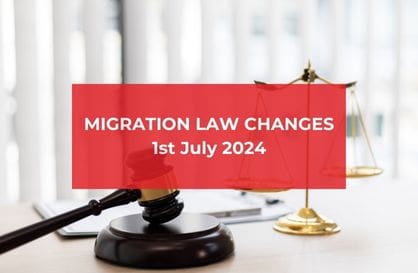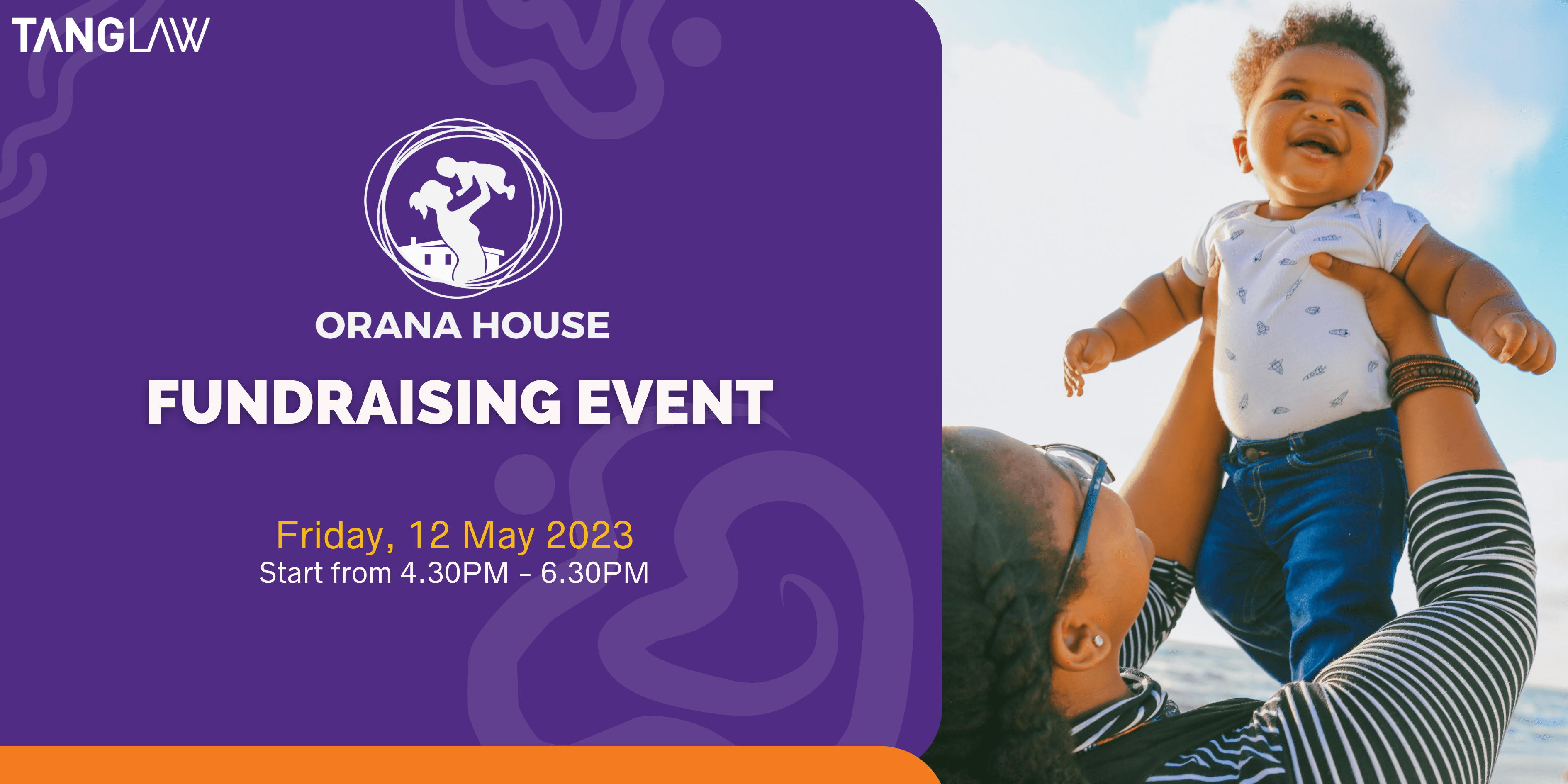1 July 2024 Migration Law Changes
On 11 December 2023, the Australian Government announced proposed changes to the Australian migration program under their Migration Strategy.
The purpose of the changes is to return migration levels to normal, strengthen the community and improve the living standards of Australians.
As part of the Migration Strategy, several important changes came into effect on 1 July 2024. These include:
A. Fee increases for visas, appeals and citizenship applications
Visa application fees were increased based on the forecast Consumer Price Index (CPI). For example,
- A Partner visa application fee has increased from $8,850 to $9,095; and
- A Student visa application fee for main applicants has increased from $710 to $1,600.
The Administrative Appeals Tribunal appeal fees also increased from $3,374 to $3,496. This does not include appeals relating to character and protection visas.
B. Student visa validity changes
From 1 July 2024, persons who hold the below-listed visas will be prevented from lodging a Subclass 500 Student visa whilst in Australia:
- Subclass 403 – Domestic Worker Stream
- Subclass 426 – Domestic Worker (Temporary)
- Subclass 485 – Temporary Graduate
- Subclass 600, 601, 602 and 651
- Subclass 771 – Transit
- Subclass 988 – Maritime Crew
- Subclass 995 – Diplomatic – primary visa holder only
C. Subclass 485 (Temporary Graduate) visa change in stream names, reduced age limit, and validity periods
The following amendments have been made to the Subclass 485 visa:
-
- New stream names have been introduced to replace the previously named streams which include:
- Post-Vocational Education Work stream which replaced the Graduate Work stream; and
- Post-Higher Education Work stream which replaced the Post-Study Work stream.
- The Replacement Stream is no longer available to applicants who held a Subclass 485 visa and lost time on their original visa due to COVID-19 travel restrictions.
- The age to apply for a Subclass 485 visa has been reduced to 35 years or younger. For Hong Kong or British National Overseas passport holders and for those who have completed a Masters (research) or PhD the age limit is 50 years old.
- Applicants who held their first Student visa after 16 November 2011 can now apply for the Subclass 485 visa under the Post-Higher Education Work stream.
- Applicants who have studied and lived in a regional area are still able to apply for the Subclass 485 visa under the Post-Higher Education Work stream provided they meet the visa criteria.
- The visa validity period for a Subclass 485 visa under the Post-Vocational Education Work stream will be 18 months.For the Post-Higher Education Work stream the validity period will depend upon the qualification completed and whether the applicant is a Hong Kong and British National Overseas passport holder or an Indian national.The general validity period for the below-completed qualifications is as follows:
- Bachelor degree (including honours) – up to 2 years
- Masters (coursework and extended) – up to 2 years
- Masters (research) and doctoral degree (PhD) – up to 3 years.
- New stream names have been introduced to replace the previously named streams which include:
If the applicant is a Hong Kong and British National Overseas passport holder they can stay for up to 5 years. Indian nationals can also stay for up to 4 years depending on the qualification completed.
D. Working Holiday visa expansion for UK citizens; Work and Holiday visa now available to Filipino nationals
UK passport holders can now apply for their second and third Subclass 417 (Working Holiday) visas without having to meet the “specified work” requirement.
Filipino nationals can now apply for a Subclass 462 (Work and Holiday) visa provided they meet the qualification and visa criteria.
E. Increase to the Temporary Skilled Migration Income Threshold (TSMIT) for employer-sponsored visas such as the Subclass 482, 186 and 494 visas
The TSMIT has increased from $70,000 to $73,150.
This new increase will apply to Nomination applications lodged after 1 July 2024.
F. Work condition changes to employer-sponsored visas such as the Subclass 457, 482 and 494 visas
Applicants who currently hold one of the above visas or have been granted a 482 or 494 visa after 1 July 2024 can cease to work with their current employer for up to 180 days but no more than 365 days during their visa period. They can also work for any other employer in any occupation during this period to financially support themselves whilst they look for another business sponsor in Australia if they decide to continue to stay in Australia.
G. Changes to Partner visas and family violence provisions
The wording of the family violence provisions available to applicants has changed from “suffered” family violence to “experienced” family violence.
Applicants who hold a Subclass 300 (Prospective Marriage) visa who are in Australia and have not married their sponsor can now access family violence provisions to be granted a Subclass 820/801 (Partner) visa.
H. New Workplace Justice Visa
A new stream under the Subclass 408 (Temporary Activity) visa will be available to applicants to remain in Australia to undertake a workplace justice activity with no sponsorship needed.
I. Closure of some visas and pathways
Applications for the Subclass 476 (Skilled-Recognised Graduate) visa and the Subclass 485 Specialist Qualifications pathway will no longer be open to applicants from 1 July 2024.
J. Changes to policy on visa health requirements
The Significant Cost Threshold for most visas has been increased from $51,000 to $86,000.
If you have any questions about these changes, or are looking to get advice regarding your visa options and migration pathways tailored to your specific situation, please contact us to schedule an appointment with one of our dedicated and friendly migration lawyers.






